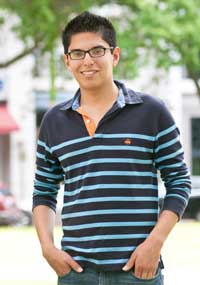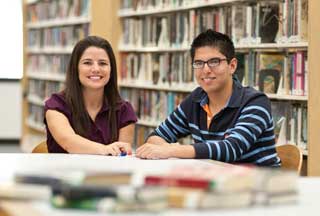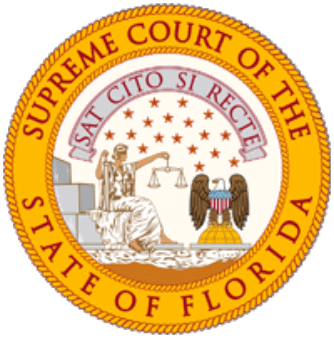
Growing up in San Juan del Rio, Queretaro, a city on Mexico’s central plateau, Leonardo Leal realized from a young age that knowledge would be the key to his future.
His grandmother Magdalena raised him until he was 12, and although she had little education herself, she instilled its importance in her grandson.
“She explained to me the realities of life, how if I didn’t have a good job I would suffer and my family would suffer and how I would create a cycle of poverty, so I learned a lot from that,” said Leal, now an 18-year-old freshman attending Stanford University on a full scholarship.
Magdalena’s lessons stayed with Leal when his mother and stepfather brought him to live in Florida, but pursuing his education proved difficult. He arrived speaking no English, and throughout high school he was shifted from one household to another due to instability at home.
He lived with an aunt for a while until she married and no longer had room. During his junior year, he tried living with his mother, whom he hadn’t lived with since he was an infant. But his stepfather kicked him out of their cramped mobile home, where Leal had slept on the floor in a room he shared with his two little brothers.
He had refused to quit school and go to work and was told he took up too much space.
“It was difficult because everything started falling apart,” Leal said. “I didn’t have a home, and I was thinking to myself, ‘Where was I going to stay?’ “
He began to doubt that he would be able to go to college. Being undocumented, he thought he might have to return to Mexico.
After concerned teachers asked him why he’d suddenly grown so quiet in class, Leal finally shared his story. An art history teacher referred him to Gulfcoast Legal Services (GLS), and a guidance counselor to a program for displaced students called Project Heart, which helped him with books, school supplies, and bus vouchers.
GLS staff attorney Adriana Dinis, whose work is funded in part by a $57,680 Florida Bar Foundation Children’s Legal Services grant, represented Leal at a dependency hearing to establish that he qualified for Special Immigrant Juvenile Status, which would enable him to become a permanent resident of the United States and pursue his education.
Dinis succeeded in obtaining permanent residency for Leal through SIJS, a federal protection for neglected, abandoned or abused immigrant children. As an undocumented immigrant, Leal would have otherwise been subject to deportation and ineligible for federal financial aid.
With renewed hope about his future, Leal started working harder than ever in school, taking Advanced Placement courses and college entrance exams.

“I knew that if I committed myself for a whole year — even though it was going to be a really rigorous year — I knew it was going to help me in the future and also take a way some of the negative things I was thinking at the time,” Leal said.
His hard work paid off. Leal graduated first in his class, and scholarship offers poured in from some of the country’s top universities, including Harvard, Brown and Stanford. Meanwhile, his story was carried in newspapers and television stations both in Mexico and the United States. He attracted so much attention in Mexico, airport customs officials there recognized him when he went to visit his grandmother, asking, “Aren’t you the guy who’s going to Stanford?”
Dinis said the remarkable thing about Leal is that he had already achieved so much before showing up on her doorstep.
“I always tell people he did the hard part. I did the easy part,” Dinis said.
Still, Leal and Dinis are both aware of an irony that is central to his story: had Leal’s stepfather not thrown him out, he would not have qualified for SIJS.
“I see hundreds of kids each year I can’t help because they are happy at home and have never been victims of abuse or neglect,” Dinis said. “There’s nothing I can do to help.”
But Leal believes there is something he can do. He plans to use his story to advocate for passage of the Dream Act, which would give other undocumented immigrant kids the chance he’s had.
“I represent the immigrant community, the students who want to go to college,” Leal said. “I want to change the misconception about people who come from immigrant backgrounds.”
Apart from his grandmother, the only role model Leal has ever looked to is a Mexican president from the 19th century.
“His name is Benito Juarez,” Leal said, going on to describe Juarez as an indigenous person of humble origin who rose above his station to become one of the country’s greatest leaders. Juarez, who went from being an illiterate shepherd who spoke only his native Zapotec to a five-term president who spoke several languages, began his professional career as a lawyer. Today, his birthday is a national holiday in Mexico.
Among Juarez’s most famous quotations is this: “Among individuals, as among nations, respect for the rights of others is peace.”




